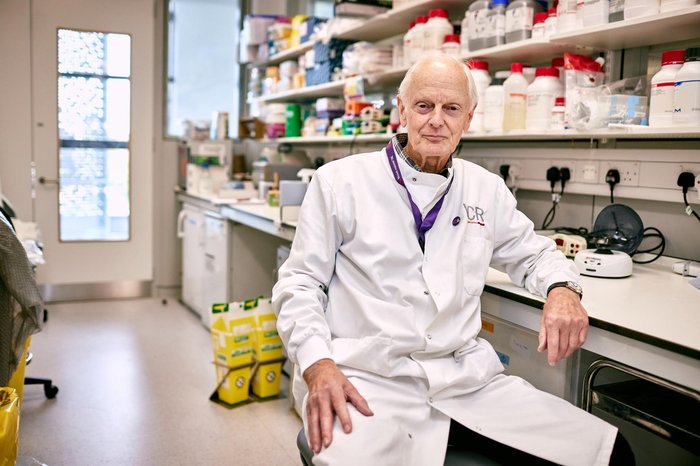Developing a new type of treatment for leukaemia
Despite the progress we’ve made, we still not able to cure everyone with leukaemia with the treatments we have. Prof Terence Rabbitts is developing a brand-new type of treatment which could provide a new option for people with leukaemia.
The challenge
Leukaemia is a group of blood cancers which affect people of all ages. The standard treatments for leukaemia typically involve chemotherapy drugs. However, these drugs don’t always control the cancer completely, meaning that the cancer can sometimes come back. Scientists are trying to develop new drugs which target specific molecules found inside cancer cells. But for some of these molecules, this has proven difficult to achieve. We need to develop new treatments to control leukaemia and give everyone the best chance of survival.
The project
Most cancer drugs are small chemicals which, when swallowed or injected, travel around the body and enter the cancer cells. The drug then blocks a specific molecule inside the cell, which stops the cells from multiplying, or destorys them. Prof Terence Rabbitts and his team are developing a new type of treatment for leukaemia. Instead of sending the drug, they hope to send the ‘recipe’ for the drug to cancer cells. The cancer cells then make the drug, which then kills them. The team hope their new system will have two advantages over the standard small chemical drugs. Firstly, their new type of treatment will be able to block cancer-specific molecules which have so far been ‘undruggable’ with standard treatments. Secondly, because their treatment is designed to only affect cancer cells, they hope it will have fewer side-effects compared to treatments like chemotherapy. In this project, Prof Rabbitts and his team are improving their treatment to make sure that it kills the cancer cells effectively. They will also find a way to efficiently deliver the drug ‘recipe’ to the cancer cells.
The future
This project will demonstrate the potential for this brand-new type of treatment for leukaemia. If successful, it will need further testing before it can move to clinical trials. In the long term, Prof Rabbitts hopes that it can provide a new option for people with leukaemia, which will have fewer side effects and give everyone a better chance of survival.

